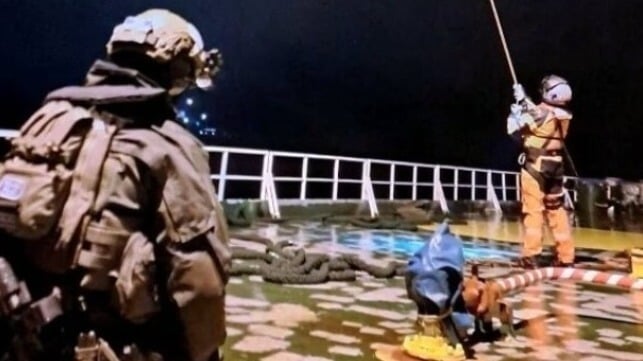EU Searches for Legal Ways to Interdict Russia's "Shadow Fleet" Tankers

EU nations are working out new ways to interdict the Russian "shadow fleet" of aging tankers in the Baltic, four diplomatic sources have informed Politico. The effort includes new legislation that would codify protocols into law.
EU members have grown concerned about the risks posed by the anonymously-owned, questionably-insured Aframaxes and Suezmaxes that serve Russian oil terminals in the Baltic Sea. These vessels lift oil that is priced above the G7 "cap" on tanker services, and are flagged, owned, insured and classed using non-Western service providers. Many have extensive lists of inspection deficiencies, and many more are near (or past) the standard 20-year retirement age of a crude oil tanker.
In addition, four separate anchor-drag incidents severed subsea cables between NATO nations in the Baltic over the last year, and one involved a shadow fleet tanker. The damage has raised concerns that Russian intelligence agencies may be paying vessel crews to carry out intentional, hard-to-prove "hybrid" attacks on subsea infrastructure.
Officials told Politico that EU nations are assembling the legal framework for a more forceful response after incidents like these. The objective would be to seize the offending vessel quickly; the legal rationale could be environmental protection or counter-piracy operations, the diplomats said. If necessary, national laws could be enacted to justify action against poorly-insured vessels - though any direct interference with ships outside the 12-nautical-mile line would have to contend with UNCLOS' provisions for freedom of navigation in international waters.
"We cannot block all the sea, but we can control more," Estonian Foreign Minister Margus Tsahkna told Politico. "There are lots of opportunities."
Covert options are also possible. On Sunday, the aging tanker Koala was preparing to depart the Russian port of Ust-Luga when she suffered a series of engine room explosions. Three separate blasts were reported as the vessel was preparing to depart, according to the security services-linked account Baza. According to the regional governor of Leningrad, the explosions were a "man-made incident," and the tanker remains afloat and securely moored at the pier.

that matters most
Get the latest maritime news delivered to your inbox daily.
Multiple Russian sources reported Monday that three holes have been found in Koala's hull near the engine room, thanks to a mini-ROV inspection of the exterior. Russian security services believe that the tanker may have been mined, Baza reports. No explosives have been found aboard, but security services are inspecting the interior of the vessel with K9 teams and a thorough ROV survey continues.
